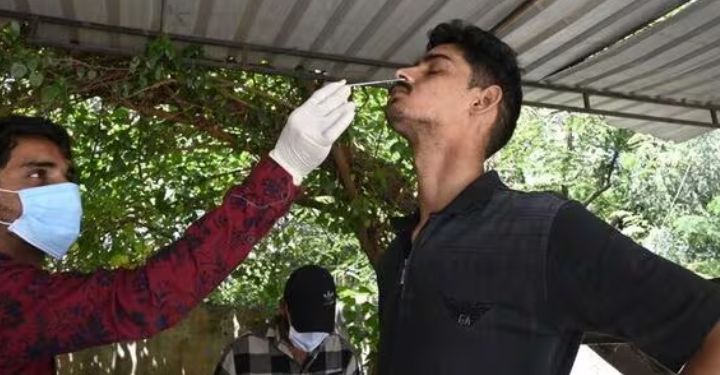New Delhi, May 31, 2025 — A rise in COVID-19 cases has prompted Delhi officials to raise the city’s public health alert level, as active infections crossed 290 and one COVID-linked death was reported. The situation remains manageable, but officials are stressing early intervention and personal responsibility to prevent further escalation.
A Slow-Building Wave
As of Friday, Delhi’s total number of active cases stood at 293 — the highest in over three months. While most patients have reported mild symptoms and are recovering at home, health authorities say the numbers reflect a steady growth trend that cannot be ignored.
Delhi Health Minister Saurabh Bharadwaj stated, “We’re not in a crisis. But the upward curve requires action. We’ve activated our alert protocols to ensure we’re prepared at every level.”
One Death Rekindles Safety Measures
The city’s first COVID-19-related death in months involved a senior citizen who was undergoing treatment for unrelated health issues. Her COVID-positive status complicated her recovery, according to hospital sources.
Officials have since urged all medical establishments to test new inpatients for COVID-19 as a preventive step and to review comorbidity risks before discharge.
Expanded Testing and Surveillance
To keep up with the emerging trend, the Delhi government has expanded its testing drive. Over 10,000 tests were conducted in the past 24 hours, and the city’s positivity rate now sits around 3.5% — up from 1.9% at the beginning of the month.
RT-PCR and antigen test facilities have been expanded across 11 districts, with priority given to government clinics and mobile health vans.
District-level contact tracing units are also being reactivated to track clusters and ensure home isolation protocols are followed when needed.
Variant Detection in Progress
Although no new variant has been officially confirmed, genome sequencing of recent cases is underway. Health authorities suspect the presence of an Omicron subvariant like FLiRT or JN.1, which has been reported in Maharashtra and Karnataka.
The Indian SARS-CoV-2 Genomics Consortium (INSACOG) is expected to release an update by the first week of June.
Hospitals Update Readiness Plans
Delhi’s leading hospitals have begun reviewing their COVID-19 readiness plans. AIIMS, RML, and Max Hospital have all confirmed that oxygen plants, COVID wards, and telemedicine services are functional and scalable if needed.
Training for nursing staff and medical interns has been refreshed, and a portion of emergency beds has been reserved for any sudden rise in serious cases.
Schools and Offices Reassess Protocols
While there’s no mandate for school closures, institutions have been asked to remain alert. Morning temperature checks, mandatory leave for symptomatic staff, and hygiene awareness campaigns are being reintroduced.
Private sector offices are also reviewing their hybrid work policies and considering optional work-from-home for employees with symptoms or caregiving responsibilities.
Public Communication Campaign Underway
The Delhi government has launched a new awareness campaign titled “Stay Safe, Stay Smart.” Using SMS alerts, radio jingles, metro announcements, and posters, the campaign encourages:
- Testing at first sign of illness
- Wearing masks in crowded indoor spaces
- Avoiding close contact with high-risk individuals
- Getting vaccinated and boosted
What Citizens Should Do Now
Authorities have stopped short of imposing any restrictions but are urging personal responsibility. People with symptoms are asked to avoid social gatherings, travel, and in-person work. Vulnerable individuals are advised to resume mask-wearing and limit non-essential outings.
The Health Minister summed it up best: “It’s not about fear, it’s about foresight.”
For More News updates : https://asiapedia.in
